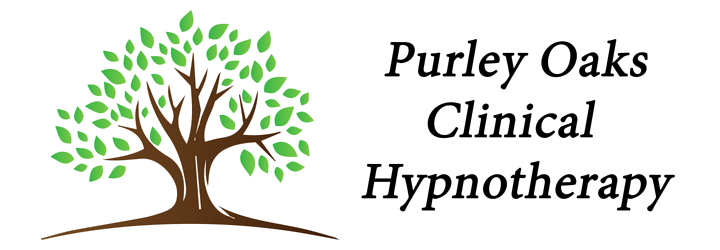Recovery from Coercive Control
What is coercive control?
Coercive control is a form of ongoing emotional and psychological abuse. It’s not usually about one incident, but a series of behaviours designed to undermine, isolate, and dominate another person. The aim, whether deliberate or not, is to create fear, dependence, and self-doubt. That might include controlling what you wear, where you go, who you speak to. It might be constant criticism, threats, or manipulative silences. Over time, it chips away at your confidence, your ability to make decisions, and even your grasp on what’s real.
What makes coercive control so difficult to recognise is that it often happens gradually. And it can be cloaked in concern, jealousy, or even affection. That’s why many people who’ve lived through it struggle to explain what was happening, especially when there’s little or no physical violence. But just because it didn’t leave bruises doesn’t mean it didn’t cause deep harm.
What coercive control actually feels like
You probably already know the definition of coercive control. Especially if someone has used subtle or overt manipulation to control your behaviour, limit your independence, or wear down your sense of self. It might’ve involved controlling where you went, what you wore, who you saw. But it wasn’t always that obvious. Maybe it was the constant undermining, the gaslighting, the emotional withdrawal used as punishment. Maybe it was all done under the guise of “caring.”
Coercive control can happen in romantic relationships, family systems, friendships, even workplaces. It rarely looks the same twice. And it often doesn’t feel like abuse at the time. In fact, many people only realise what they’ve been through once they’ve got some distance.
By then, the internal effects have often taken hold:
- Doubt in your own perceptions, feelings, and instincts
- Fear of speaking up, or even thinking certain thoughts
- A tendency to freeze, apologise, or second-guess yourself
- Shame for not leaving sooner, or not seeing it earlier
- Difficulty trusting others, or trusting yourself
It’s not just that you were treated badly. It’s that your own compass was knocked off course. And when that happens, it can take a while to feel whole again.

Why recovery can feel so strange
Even after the relationship or situation has ended, it’s common to feel… not quite free. That might sound odd, but many people describe feeling stuck in old patterns, or reacting to everyday things as though they’re still walking on eggshells. And it’s not “just in your head.” These patterns run deep, often locked into your nervous system and subconscious beliefs.
You might have moments of clarity, where you feel strong, grounded, hopeful. Then something small happens, and suddenly you’re back in the fog, doubting yourself, questioning everything. This back-and-forth is incredibly common, and it doesn’t mean you’re not healing. It just means the nervous system still needs support.
That’s where hypnotherapy can really help. Because it works at the level where those old patterns live, below the surface, in the automatic responses that were shaped by repeated fear, control, and confusion.
How we work with coercive control at Purley Oaks
We don’t rush in with answers. We listen. And not just to what you say, but to what’s underneath, the pauses, the hesitations, the places where the story still feels tangled.
Our approach is quiet and respectful. You won’t be pushed to relive anything you’re not ready to revisit. Instead, we work with where you are now. How you’re feeling in your body. What patterns are still showing up. What it is you’d like to feel instead.
Hypnotherapy for coercive control isn’t about breaking someones coercive control over you, it’s about restoring your sense of agency, helping you reconnect with what’s real and trustworthy in yourself.
Some of the things we might gently explore together include:
- Rebuilding inner safety and trust in your own perceptions
- Letting go of guilt or shame that was never truly yours
- Unhooking from unconscious patterns or responses created during the coercion
- Strengthening boundaries and reducing stress, internally and externally
- Rejecting anxiety and reclaiming calm, confidence, and a sense of freedom in your own life
You don’t have to come in with a clear goal. Sometimes it’s enough to start with, “I just want to feel like me again.”
Coercive control steals your sense of self piece by piece. Recovery isn’t about putting yourself back together perfectly, it’s about learning to trust your own voice again, even when it still feels shaky.”
Sophie Everitt
Small shifts that can lead to big changes
People often tell us that after a few sessions, they start noticing subtle differences. They speak up more without rehearsing. They pause instead of apologising. They feel calmer in conversations that would have triggered panic before.
These changes matter, not because they’re dramatic, but because they come from deep inside. They’re signs that the brain and body are re-learning what safety feels like. That the fear-driven responses are loosening their grip.
This isn’t about “fixing” you. You were never broken. It’s about peeling away the layers of conditioning, protection, and adaptation that built up when you needed them. And then letting your true self take up space again.

Why hypnotherapy for coercive control matters
You might wonder if it’s really worth digging into all of this. You’ve survived. You’re out. Shouldn’t that be enough?
But survival and healing are two very different things. You deserve more than just coping. You deserve to feel steady, respected, connected, in your own skin and in your relationships. And that kind of recovery doesn’t happen by accident. It happens when you’re met with the right kind of support, at the right time.
Our work together isn’t about looking backwards unless it helps you move forwards. And you never have to explain or justify what you went through. We believe you. And we’ll walk alongside you until you believe in yourself again too.
Ready to begin, or just thinking about it?
There’s no perfect moment to start healing. Sometimes the first step is simply allowing yourself to acknowledge that what happened wasn’t okay. Sometimes it’s being curious about how much lighter life could feel.
At Purley Oaks Hypnotherapy, we offer a calm, supportive space where you can gently begin to rebuild. Sophie Everitt has a special interest in working with the effects of coercive control and brings a deeply respectful, sensitive approach to this kind of recovery. There’s no pressure, no judgment, and no expectations. Just warmth, understanding, and a quiet belief in your ability to heal.
If you’re wondering whether this might be the right next step for you, we’re happy to answer questions, talk things through, or help you figure out what feels manageable.
Whenever you’re ready, we’re here.

